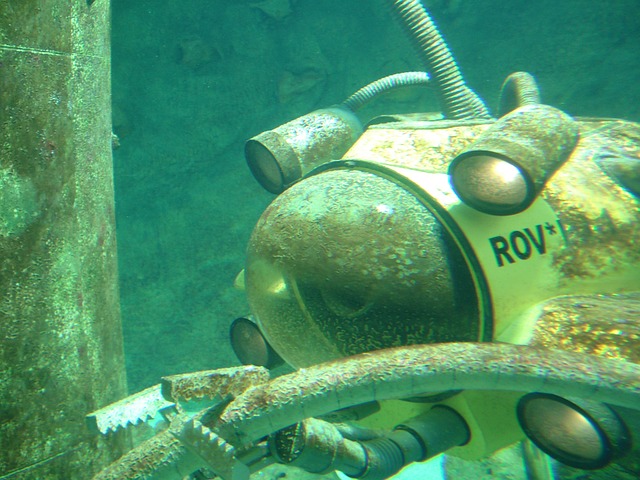 Add My Company
Add My Company

The offshore oil industry operates in some of the harshest environments on earth, with subsea equipment and pipelines subjected to extreme conditions such as high pressure, temperature, and corrosive seawater. Fasteners used in these environments are critical components that hold everything together, and their failure can have serious consequences such as leaks, spills, and equipment damage. This publication focuses on the impact of seawater exposure and cyclic loading on bolt failure in offshore platforms and recommends preventive measures to mitigate this risk.

Fastener fatigue life
Fastener fatigue is a common mode of failure in offshore platforms, where equipment and pipelines are subjected to cyclic loading over long periods. This loading can cause microscopic cracks to form in the fastener material, which can grow and eventually lead to catastrophic failure. Fastener fatigue life is influenced by several factors, including the material properties, the design of the joint, the loading conditions, and the operating environment.
Material properties
The choice of material for fasteners is critical in harsh offshore environments, where seawater exposure and corrosive gases can cause rapid degradation of certain materials. Common materials used for fasteners in offshore platforms include carbon steel, alloy steel, and stainless steel. Carbon steel is the most common material due to its high strength and low cost, but it is also susceptible to corrosion in seawater. Alloy steel and stainless steel are more resistant to corrosion, but they are also more expensive and may not be suitable for all applications.
Design of the joint
The design of the joint can also have a significant impact on fastener fatigue life. Factors such as the size and shape of the fastener, the number of fasteners, and the preload applied to the joint can all affect the fatigue behaviour. For example, joints with too few fasteners or insufficient preload may experience higher stress concentrations and be more prone to fatigue failure.
Loading conditions
The loading conditions that fasteners are subjected to can also impact fatigue life. In offshore platforms, cyclic loading is common due to the continuous movement of the platform caused by waves and wind. The frequency and magnitude of the cyclic loading can vary depending on the location and weather conditions, and can significantly affect the fatigue behaviour of the fasteners.

Operating environment
The operating environment in offshore platforms can also affect fastener fatigue life. Seawater exposure is a major concern, as it can cause corrosion and stress corrosion cracking in certain materials. The presence of corrosive gases such as hydrogen sulphide can also accelerate degradation and increase the risk of failure.
Case study: Impact of seawater exposure and cyclic loading on bolt failure
To illustrate the impact of seawater exposure and cyclic loading on bolt failure in offshore platforms, a case study is presented here. The case study focuses on a subsea pipeline connection in the North Sea, where several bolts failed after only a few years of service.
The pipeline connection consisted of two flanges, each with 12 bolts, that were connected using a bolt tensioning system. The bolts were made of carbon steel and had a diameter of 1 inch. The pipeline was exposed to seawater and subjected to cyclic loading due to the continuous movement of the platform caused by waves and wind.
After a few years of service, several bolts in the connection failed due to fatigue. Failure analysis revealed that the bolts had developed fatigue cracks at the root of the threads, which had grown and eventually led to complete fracture. The cracks were caused by the cyclic loading of the pipeline, which had exceeded the fatigue limit of the bolts.
Further analysis also revealed that the seawater exposure had accelerated the corrosion of the bolts, reducing their strength and contributing to the fatigue failure. The combination of cyclic loading and seawater exposure had therefore significantly reduced the fatigue life of the bolts, leading to premature failure.
Preventive measures
To prevent fastener failure in offshore platforms, several preventive measures can be implemented. These measures include:
- Material selection: Choosing the right material for fasteners is critical in offshore platforms. Corrosion-resistant materials such as alloy steel and stainless steel are preferred for applications where seawater exposure is a concern.
- Coatings: Applying coatings such as zinc, cadmium, or other anti-corrosion coatings can help protect fasteners from the corrosive effects of seawater. However, the coating must be carefully selected based on the specific application and environmental conditions.
- Preload: Properly tightening fasteners to the recommended preload can help distribute the load evenly and reduce stress concentrations. This can help prevent fatigue cracks from forming and improve the fatigue life of the joint.
- Inspection: Regular inspection of fasteners can help detect early signs of corrosion, cracking, or other defects. This can help identify potential problems before they become serious and allow for preventive measures to be implemented.
- Maintenance: Proper maintenance of offshore equipment and pipelines is critical to preventing fastener failure. Regular cleaning and inspection can help reduce the impact of seawater exposure and ensure that fasteners are functioning properly.
Conclusion
Fastener fatigue life and failure analysis are critical issues in offshore platforms, where equipment and pipelines are subjected to extreme conditions such as seawater exposure and cyclic loading. The case study presented here illustrates the impact of these factors on bolt failure and highlights the importance of preventive measures to mitigate the risk.
Proper material selection, coatings, preload, inspection, and maintenance can all help improve the fatigue life of fasteners and prevent premature failure. By implementing these measures, offshore operators can reduce the risk of equipment damage, spills, and environmental damage, and ensure the safe and reliable operation of their assets.
For more information on FASTENER FATIGUE LIFE AND FAILURE ANALYSIS IN HARSH OFFSHORE ENVIRONMENTS talk to Hague Special Fasteners Limited

